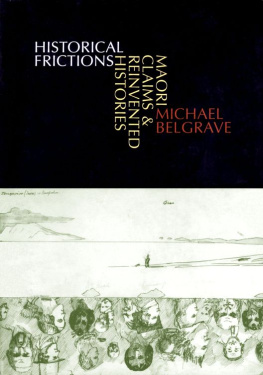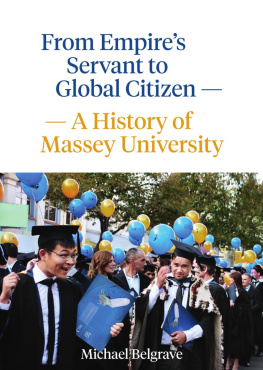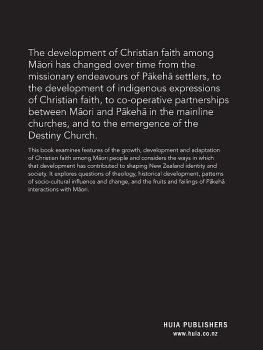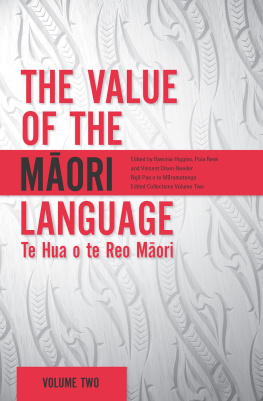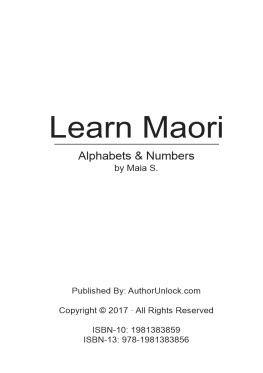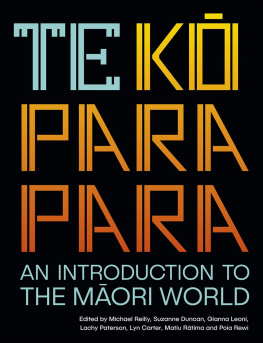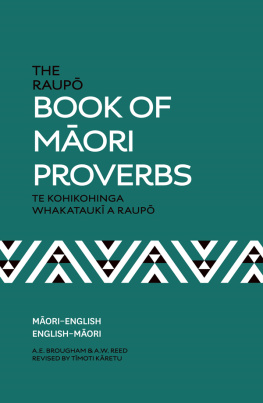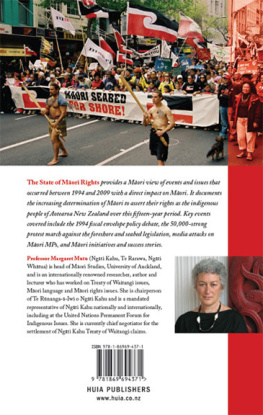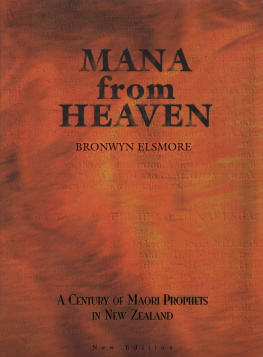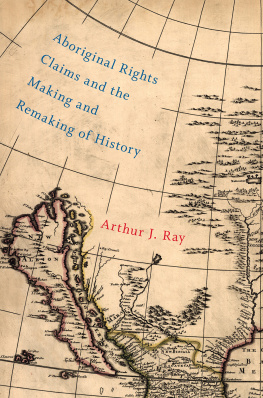Michael Belgrave - Historical Frictions: Maori Claims and Reinvented Histories
Here you can read online Michael Belgrave - Historical Frictions: Maori Claims and Reinvented Histories full text of the book (entire story) in english for free. Download pdf and epub, get meaning, cover and reviews about this ebook. year: 2012, publisher: Auckland University Press, genre: Politics. Description of the work, (preface) as well as reviews are available. Best literature library LitArk.com created for fans of good reading and offers a wide selection of genres:
Romance novel
Science fiction
Adventure
Detective
Science
History
Home and family
Prose
Art
Politics
Computer
Non-fiction
Religion
Business
Children
Humor
Choose a favorite category and find really read worthwhile books. Enjoy immersion in the world of imagination, feel the emotions of the characters or learn something new for yourself, make an fascinating discovery.
- Book:Historical Frictions: Maori Claims and Reinvented Histories
- Author:
- Publisher:Auckland University Press
- Genre:
- Year:2012
- Rating:3 / 5
- Favourites:Add to favourites
- Your mark:
- 60
- 1
- 2
- 3
- 4
- 5
Historical Frictions: Maori Claims and Reinvented Histories: summary, description and annotation
We offer to read an annotation, description, summary or preface (depends on what the author of the book "Historical Frictions: Maori Claims and Reinvented Histories" wrote himself). If you haven't found the necessary information about the book — write in the comments, we will try to find it.
Historical Frictions: Maori Claims and Reinvented Histories — read online for free the complete book (whole text) full work
Below is the text of the book, divided by pages. System saving the place of the last page read, allows you to conveniently read the book "Historical Frictions: Maori Claims and Reinvented Histories" online for free, without having to search again every time where you left off. Put a bookmark, and you can go to the page where you finished reading at any time.
Font size:
Interval:
Bookmark:
Imperial measurements are used in the text for area and distance. Their metric equivalents are:
1 acre = 0.405 hectares
1 mile = 1.609 kilometres
As a younger historian and one of the first appointments to the Waitangi Tribunal research staff, I went to Wellington reluctantly in early 1987. Professionally, this disinclination came from a belief that the Waitangi Tribunals new jurisdiction would make for uninteresting history. Land deeds and court decisions appeared a dull window into New Zealands past. I could not have been more wrong. The issues uncovered by the tribunals inquiries are among the most complex and challenging for any historian. Understanding what happened and why in this troubled but creative relationship between the government and Maori is not straightforward. What made these arguments about the past even more interesting was the legal and political context in which they were presented. At one level it was necessary to understand just how history could be made and remade before judges and tribunals, but at another level it was an introduction to an applied history, where the issues were often part of the public debate and the consequences meaningful not just for contemporary race relations, but for the material well-being of the claimant groups who were taking their grievances to the tribunal.
The Waitangi Tribunal was and remains one of the most controversial of New Zealands government institutions, whose work is as much misunderstood as it is championed or demonised. As many of the historians, counsel, claimants and tribunal members themselves worked through these claims, we were privileged to look back on our history in a way that seemed fundamental to key issues about the way New Zealand should deal with its past and, more important, the place of Maori in our society. The history was extraordinarily interesting, but it was not the central focus. The history assisted the tribunal to understand the claims before it and to make recommendations, according to its jurisdiction, on how Maori grievances in the late twentieth century should be resolved. For me as an historian, however, the question of how we understand the past, and, more important, how we regularly transform that understanding, became more and more absorbing. Many of the issues discussed in this book have remained puzzling questions long after the tribunal issued its report, and in many cases long after a settlement was reached. The tribunal had one way of interpreting the arguments presented before it, and often its decisions made sense according to its jurisdiction, but some of the historical questions were not so easily resolved. This book attempts to provide answers to some of these historical puzzles not to convince anyone that the tribunal was wrong, but primarily to resolve my own curiosity about how things happened and why they were remembered so differently at later times.
The cover illustrates some of these questions. Walter Mantell drew this sketch of an empty landscape looking north from Otaki beach to the mountains of Taranaki, Ruapehu and Tongariro on 3 July 1844. Turned upside down, the sketch also shows historical, classical, mythological and contemporary figures, most European, some Maori. Mantell was a land purchase officer, government official, minister of the Crown and advocate for the Ngai Tahu claims. This early doodling and his long career illustrate many of the themes explored in this book; the impact and importance of the past in the present, peopling the New Zealand landscape with an imported culture and history and the dangers of reducing New Zealands past to simple dichotomies Maori and Pakeha, colonial and post-colonial, past and present.
There are many who need thanking, and in particular I should like to acknowledge the School of Social and Cultural Studies at Massey University, in which I work, and my colleagues and students who have engaged with or suffered from so many of these issues being debated over a long time. I am especially grateful to the Centre for Research in the Arts, Social Sciences and Humanities (CRASSH) at the University of Cambridge and Wolfson College, both of whom provided fellowships in 2003. Most of the book was completed during that time with the generous encouragement and support of John Morrill, Ludmilla Jordanova, David Feldman, William OReilly and the staff of CRASSH. Alan Ward, Deborah Montgomerie, Aroha Harris, Paul McHugh, David Williams, Keith Sorrenson, Gordon Orr, Tom Bennion, Buddy Mikaere, Grant Young and Anna Deason have considered and debated many of these questions for some time. The Waitangi Tribunal staff went out of their way to give me access to the research produced for claims, and Jessica Haddock did an excellent job of copying and collating the thousands of pieces of paper involved. Tracy Sanderson and Margaret Millard provided invaluable assistance in producing the text. I am grateful for the patience and support of Elizabeth Caffin, Anna Hodge and Katrina Duncan of Auckland University Press, and to Diane Lowther who prepared the index. Andrew Mason has been the very best of editors, engaging with the material, helping to strengthen the argument in so many places and encouraging necessary revision. His help has been essential.
Being an historian working for the Waitangi Tribunal also brought me into contact with some extraordinary New Zealanders, people who had been appointed to the tribunal and who brought an enduring commitment to this society and to its future. This book is dedicated to members of the Ngai Tahu Tribunal who are no longer with us: Judge Ashley McHugh, Sir Monita Delamere, Bishop Manuhuia Bennett and Sir Desmond Sullivan, as well as Lena Manuel, who, although a tribal member, was not part of the tribunal but acted as interpreter.
It is now over two decades since Parliament gave the Waitangi Tribunal the power to review New Zealands race relations history, allowing it to explore Maori claims against the Crown to do with events that have taken place at any time since 1840. Other similar societies created by the flood of colonists that poured out of Europe in the modern age of empires have also had legal bodies trying to resolve indigenous grievances by investigating and reinterpreting their national histories. In 1946, following widespread and valued Native American participation in World War II, the United States established the Indian Claims Commission and began an examination lasting almost four decades into the way Native American land had been acquired for European settlement. However, the Waitangi Tribunals investigations are by far the most comprehensive and extensive review of any countrys colonial legacy.
The tribunal has now produced around thirty major historical reports, and these have been based on hundreds of historical briefs of evidence written by dozens of historians. Tens of thousands of archival documents have been located, assessed and debated by historians and by the tribunal. Few issues in New Zealand history before 1985 interested a sufficient number of university-based historians to create an historiographical debate, while at tribunal hearings events are usually the subject of many different and competing interpretations. Historical evidence is made widely available during the tribunals inquiries, and is often subject to long and detailed cross-examination by a bank of lawyers who over the last decade have become extremely knowledgeable about New Zealands past. Some well-qualified and experienced historians have joined their ranks as well.
Historians have recognised that the kind of history produced by a commission of inquiry is different from academic history. However, as Oliver has argued, the tribunals interpretations of the past can and should be judged on their credibility as works of history. There should also be no difficulty in reviewing tribunal reports in academic journals. Given the very public and political purpose of the Waitangi Tribunals investigations, it is important that historians do comment on the quality of the reports as they see them. However , testing the way the tribunal writes history against the usual historians yardsticks risks overlooking the extent to which the tribunal as a commission of inquiry writes history within a distinct cultural tradition, which approaches the past very differently from historians. Commissions of inquiry draw on legal frameworks for understanding past events, are limited by their specific jurisdictions, and even look differently at the same events that caught the attention of historians. The recommendations which flow from tribunal reports are directed at changes to government policy and often have very expensive price-tags, which imposes political pressures on the tribunal that are rarely experienced by academic historians. Historians are just as rarely forced to write in committee with other historians, let alone with the non-historians of varied backgrounds and experiences who mostly make up the membership of commissions of inquiry, including the Waitangi Tribunal. Here the proceedings and the interpretation of events are controlled by the judicial and legal members, just as the evidence by professional historians is led by counsel and mediated to the commission through legal pleadings. Taking account of this setting is essential to understanding the tribunals historical narratives.
Font size:
Interval:
Bookmark:
Similar books «Historical Frictions: Maori Claims and Reinvented Histories»
Look at similar books to Historical Frictions: Maori Claims and Reinvented Histories. We have selected literature similar in name and meaning in the hope of providing readers with more options to find new, interesting, not yet read works.
Discussion, reviews of the book Historical Frictions: Maori Claims and Reinvented Histories and just readers' own opinions. Leave your comments, write what you think about the work, its meaning or the main characters. Specify what exactly you liked and what you didn't like, and why you think so.

